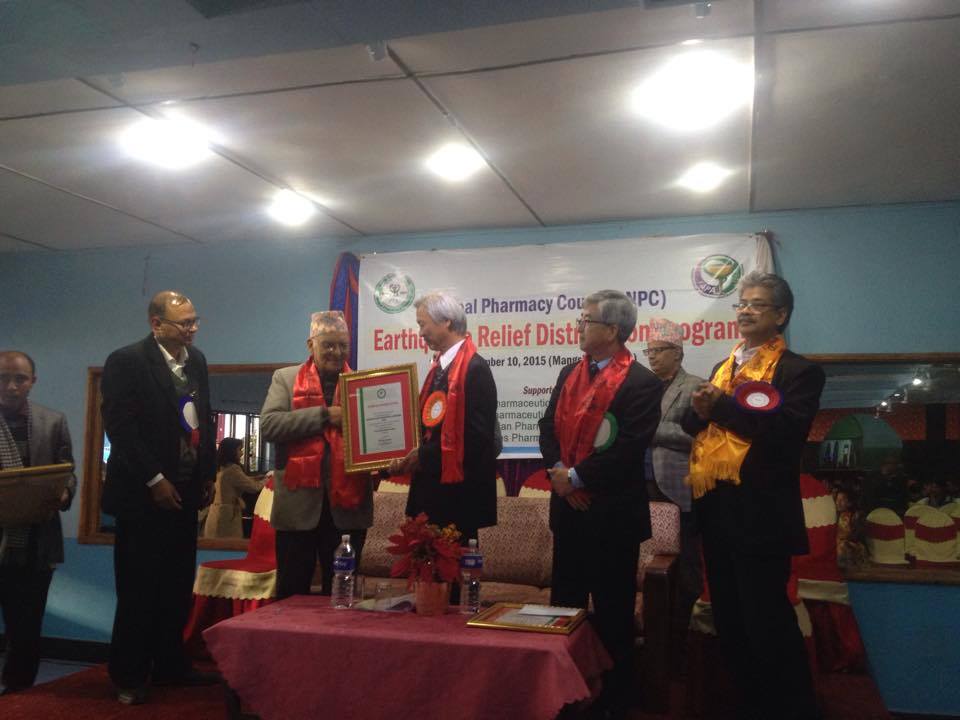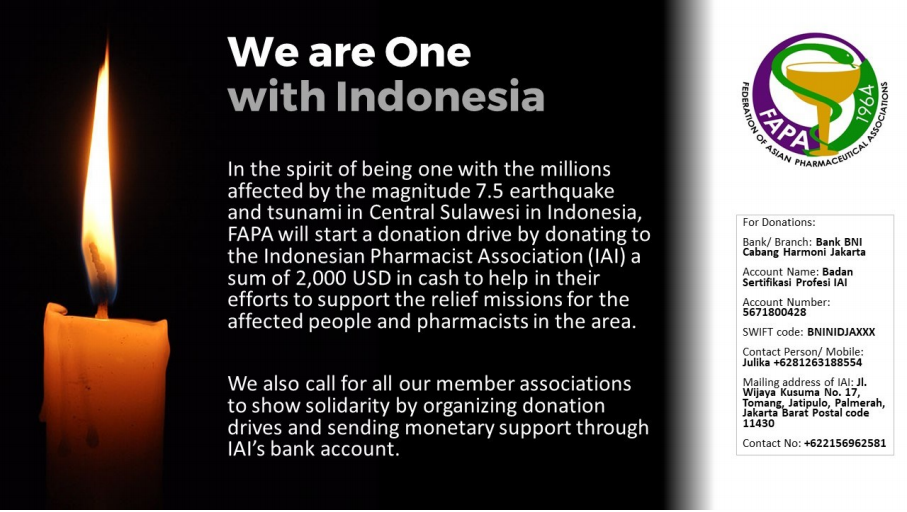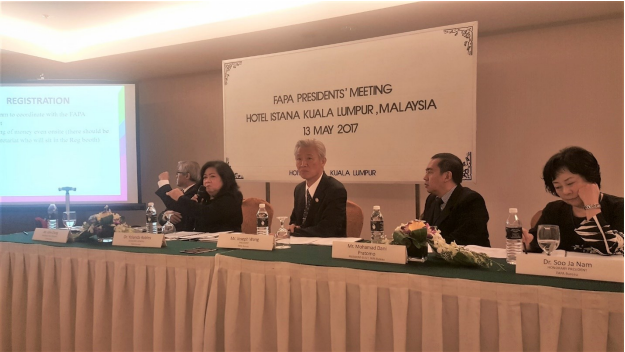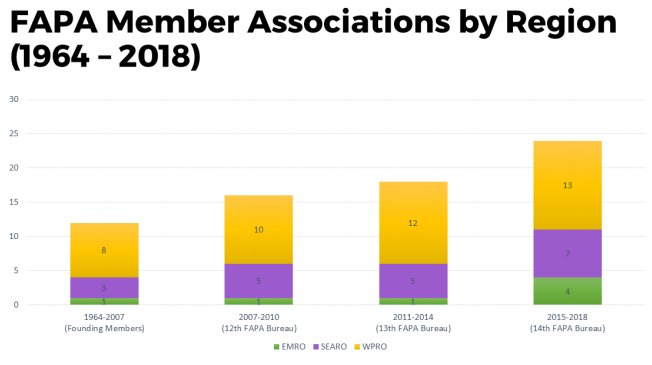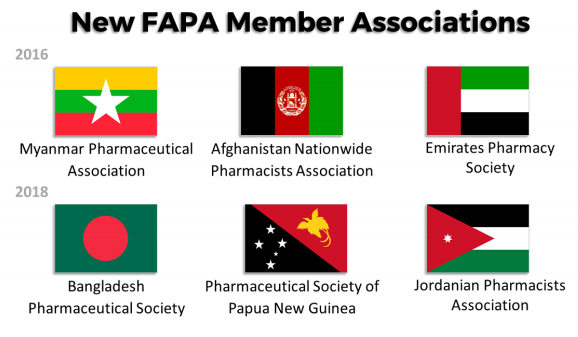Many Asian pharmacists wish to practice pharmacy at a level that is able to provide the best quality of care to their patients. Having trust and mutual respect within the healthcare team, while fulfilling their mandate as pharmacists is also the goal that many pharmacists wish to experience. Unfortunately, there are many existing barriers for this to be attained due to a variety of reasons. One particular concern is the lack of technical knowledge, skills and leadership support in the workplace in order to improve pharmacy practice. Working models of GPP exist in different countries especially in developed ones. However, these models are often already operating on advanced levels that may not be easily achieved by others due to applicability issues in different environments and cultures.
Such is the case in many developing countries in Asia. Therefore, FAPA with the full support of FAPA foundation, has focused on gathering pharmacists from various Asian countries for training programs where they can learn how the existing GPP models were developed, and develop a program of their own in their respective countries and workplaces.
With the aim of strengthening international collaboration and sharing of experiences in pursuing a higher standard of quality pharmaceutical services for the Asian people, FAPA foundation established a unique international GPP Training program for Pharmacists.
GPP training in Taiwan in partnership with TVGH
Now on its seventh (7 th) year, the partnership between FAPA foundation and Taipei Veterans General Hospital (TVGH) has continued to develop new GPP champions in different Asian countries. In the early part of the program, it included a classroom-based training course followed by an onsite visit to the hospital to gain insight and ask questions about how the hospital and clinical pharmacy services were improved. The program caters to FAPA foundation scholars, young pharmacists, other paid participants and pharmacy students as well. Through the years, there have been different partners in the organization of the program but sustainability is made possible through the continuous collaboration between different organizations that include: FAPA foundation, the FAPA hospital and clinical pharmacy section, TVGH, Taiwan Young Pharmacists Group (TYPG) and the International Pharmaceutical Students Federation (IPSF).
Travel grant scholarships
Since 2012, FAPA foundation has received over 150 scholarship applications and have awarded ninety-two (92) travel grants for pharmacists from thirteen (13) different Asian countries.
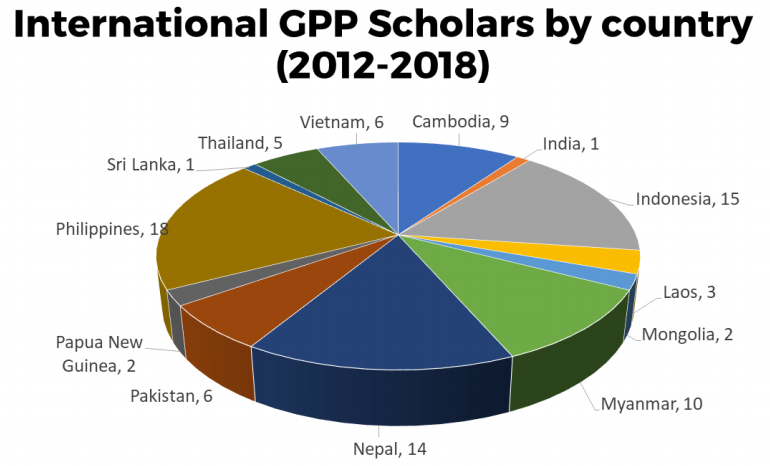
The travel grant equivalent to an amount of USD 1,000 for each participant includes the reimbursement of each participant’s round-trip airfare and allocated for their accommodations, meals and other expenses incurred during the program. After the training program, awardees are expected to submit a report and suggest ways to explore future international collaboration for implementation of a program in their country. These suggestions are considered by FAPA foundation for future implementation.
Online GPP course
In 2018, the International GPP training program coursework is set to be fully conducted on-line. The training modules were developed by FAPA Foundation in collaboration with the Taipei Medical University and Taipei Veterans General Hospital. Experts from the Taipei Veterans General Hospital and Taipei Medical University recorded online modules containing videos on different levels of Good Pharmacy Practice and are accessible to any pharmacist who wishes to learn about GPP for free of charge.
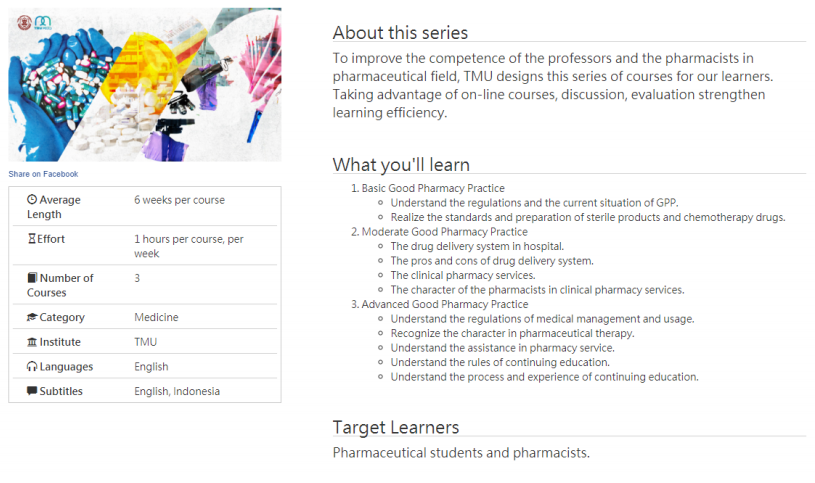
GPP training in Japan
From 24 – 25 June 2016, the FAPA Community Pharmacy Section in partnership with the Japan Pharmaceutical Association, the Fukuoka City Pharmacists Association (FPA) and Daiichi University of Pharmacy held the first FAPA Community Pharmacy Workshop in Fukuoka, Japan. The program was attended by pharmacy leaders and innovators from different Asian countries to learn about the model community pharmacy systems practicing GPP in Japan.
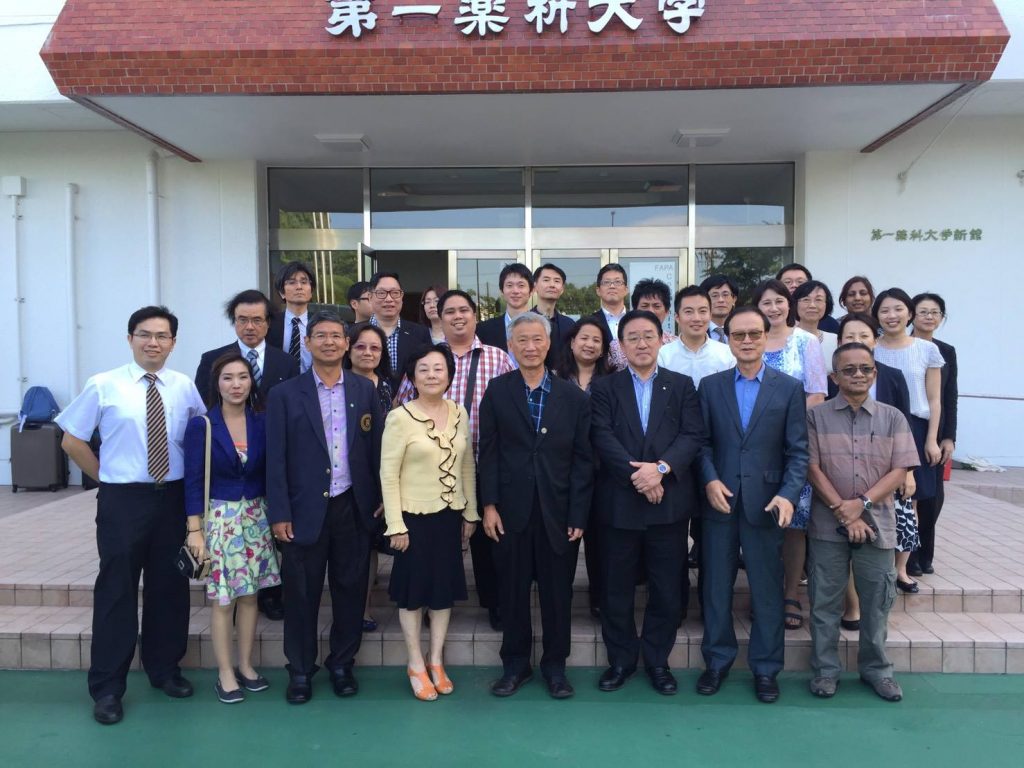
GPP program implementation in Asian countries
GPP implementation cannot be achieved by training alone. In order to further encourage other Asian countries to initiate change in their existing pharmacy practices, FAPA foundation and its partner institutions also provide continuing close collaboration and support in the planning and implementation phase of these projects.
GPP programs in the Philippines
The University of the Philippines (UP) College of Pharmacy received a grant from FAPA Foundation to implement a GPP Project during the GPP Training Program held in Taiwan in 2013. The first project where the fund was used was the establishment of patient medication counselling services in the national university hospital and premier referral center of the Philippines, the Philippine General Hospital (PGH) out-patient pharmacy department. The beneficiaries of the program include both the patients in the hospital, and the students who were given an opportunity to interact with the patients as well. The project has been sustained and have trained over 300 pharmacy students and the impact of the program on students have also been documented in a published journal article available online.

With the first project successfully turning into a program that is included in the pharmacy curriculum, the remaining fund from the initial grant has been used to pilot other initiatives such as Patient Medication History taking upon admission at PGH, establishment of clinical pharmacy services in a partner hospital, and joining the community-based Interprofessional Education (IPE) Program under the Community Health Development Program of the University. The CHDP IPE program is one initiative that has been sustained and provides valuable opportunities for pharmacy students to interact with the patients in their community but also work with students and professionals from other professions, enabling mutual respect and trust at an early stage of their professional development.
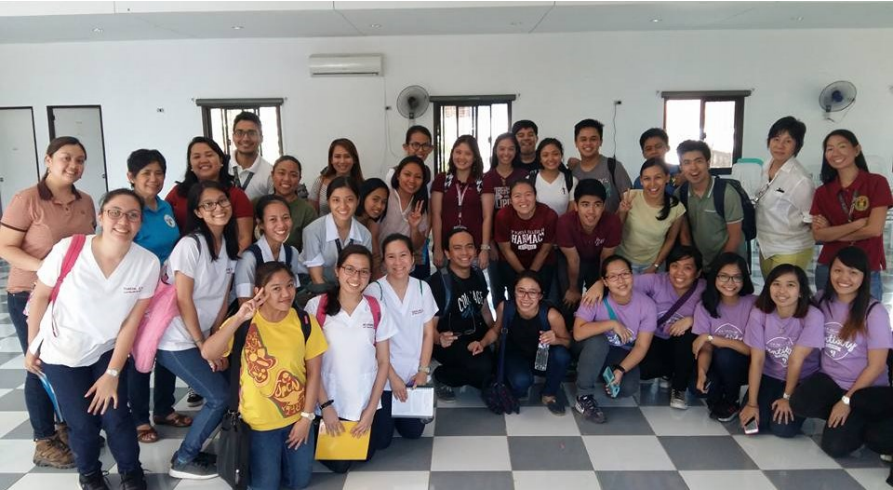
GPP implementation in Indonesia
In recent years, several highly publicized cases related to use of medicines, particularly vaccines and parenterals, have exposed the gaps in ensuring safety in the course of the medication use process in Indonesia. This is seen as a prime opportunity for pharmacists to step in and fulfill their role that could prevent this situation from happening again. While policies and standards promoting GPP have already been promulgated, there are still many factors contributing to the difficulty of implementing GPP that can still be addressed. with the support of FAPA and FAPA foundation. The first activity conducted to introduce GPP to more Indonesian Pharmacists was the site visit organized by FAPA foundation, the FAPA hospital and clinical pharmacy section, and TVGH from 18 -21 February 2016 for the Indonesian Pharmacists Association (Ikatan Apoteker Indonesia or IAI) to discuss the next steps in the collaboration.
The hospital visit was followed by a signing of Memorandum of Understanding (MOU) between IAI and the FAPA foundation during the Annual Congress of IAI on 25-30 September 2016. A collaborative meeting was also held to discuss based on the malpractice cases, the proposal of improving pharmacy services in hospitals by applying GPP principles in the steps related to the procurement, distribution, dispensing and administration of medications.
On 9 July 2017, Mr. Nurul Falah Eddy Pariang, President of IAI and Dr. Kusnanto Rusdi, Chief of Health Office of Bekasi City, signed the MOU about the implementation of GPP in the Bekasi City hospitals. This was followed by a group meeting between FAPA president, Mr. Joseph Wang and the IAI Committee to discuss areas where FAPA foundation experts can contribute in the project.
From 4-8 August 2017, the FAPA foundation GPP expert group and the IAI committee formed the GPP consultant team (GPPCT) to develop Standard Operating Procedures (SOP), forms and proposed timelines to be used by the hospitals in Bekasi City. The templates made included the following: 1) Medication Management Organization, 2) Formulary Management, 3) Disposal of Pharmaceuticals, Chemical Waste and Medical Consumables, 4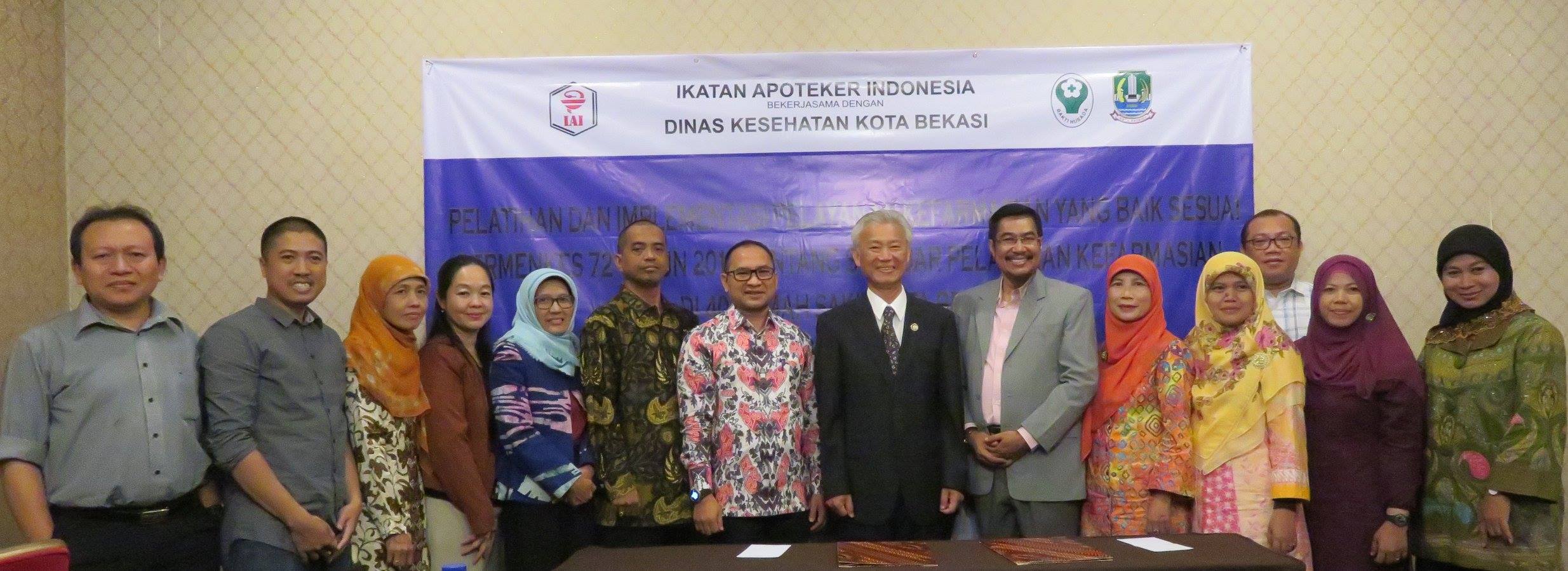 ) Purchasing and Distribution, 5) Drugs Withdrawal or Recalled, 6) Wasting Medication Product, and 7) Storage. These materials where turned over in 7 August 2017, when all forty (40) directors and pharmacy managers of the hospitals in Bekasi City gave their commitment by signing the MOU with the government to ensure a better environment conducive to patient safety. This milestone was presented to the media by FAPA president Mr. Joseph Wang, IAI President Mr. Nurul Falah Eddy Pariang and the Bekasi City health office chief Dr. Kusnanto Rusdi in a press conference.
) Purchasing and Distribution, 5) Drugs Withdrawal or Recalled, 6) Wasting Medication Product, and 7) Storage. These materials where turned over in 7 August 2017, when all forty (40) directors and pharmacy managers of the hospitals in Bekasi City gave their commitment by signing the MOU with the government to ensure a better environment conducive to patient safety. This milestone was presented to the media by FAPA president Mr. Joseph Wang, IAI President Mr. Nurul Falah Eddy Pariang and the Bekasi City health office chief Dr. Kusnanto Rusdi in a press conference.
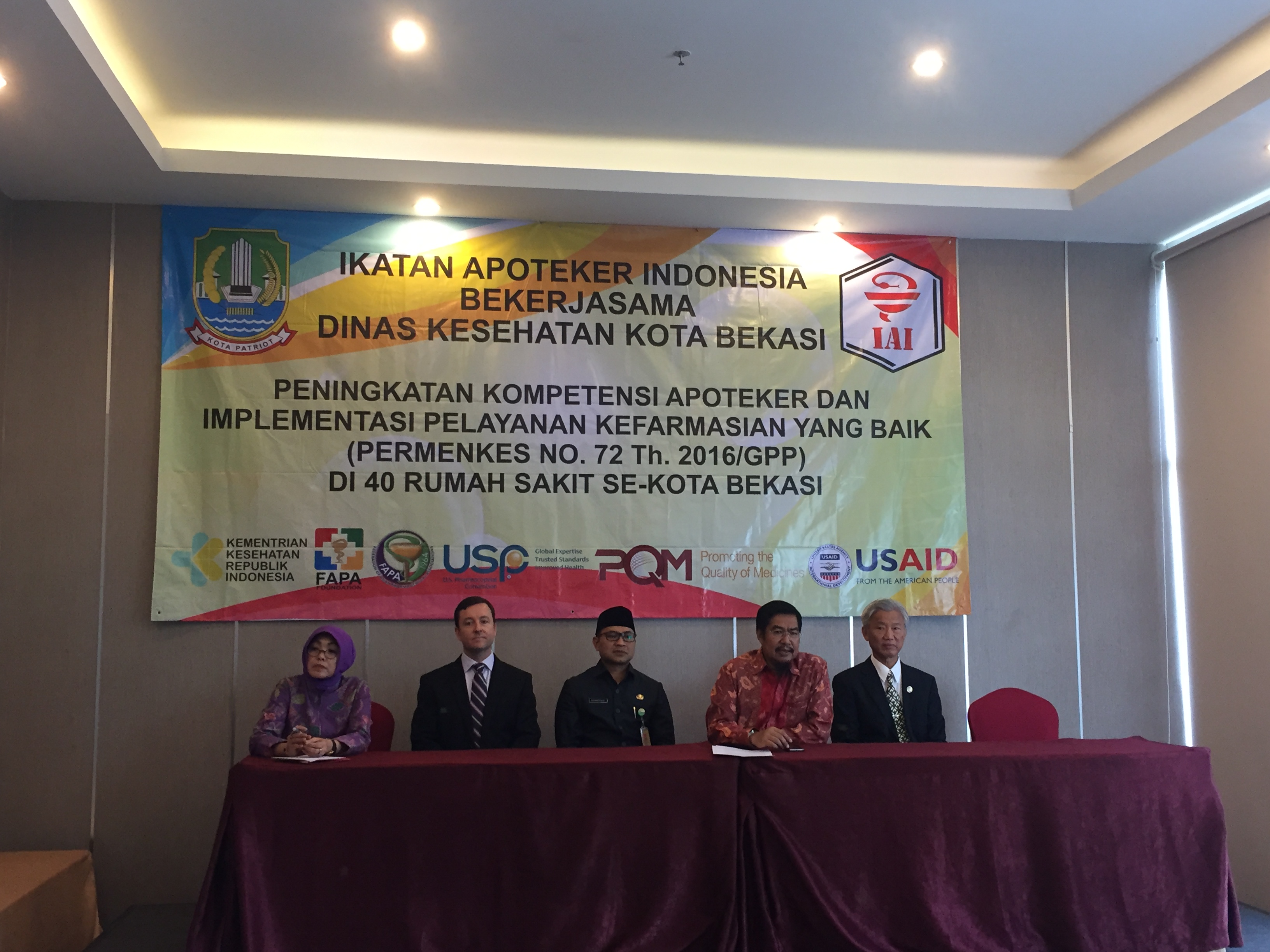






 ) Purchasing and Distribution, 5) Drugs Withdrawal or Recalled, 6) Wasting Medication Product, and 7) Storage. These materials where turned over in 7 August 2017, when all forty (40) directors and pharmacy managers of the hospitals in Bekasi City gave their commitment by signing the MOU with the government to ensure a better environment conducive to patient safety. This milestone was presented to the media by FAPA president Mr. Joseph Wang, IAI President Mr. Nurul Falah Eddy Pariang and the Bekasi City health office chief Dr. Kusnanto Rusdi in a press conference.
) Purchasing and Distribution, 5) Drugs Withdrawal or Recalled, 6) Wasting Medication Product, and 7) Storage. These materials where turned over in 7 August 2017, when all forty (40) directors and pharmacy managers of the hospitals in Bekasi City gave their commitment by signing the MOU with the government to ensure a better environment conducive to patient safety. This milestone was presented to the media by FAPA president Mr. Joseph Wang, IAI President Mr. Nurul Falah Eddy Pariang and the Bekasi City health office chief Dr. Kusnanto Rusdi in a press conference.
